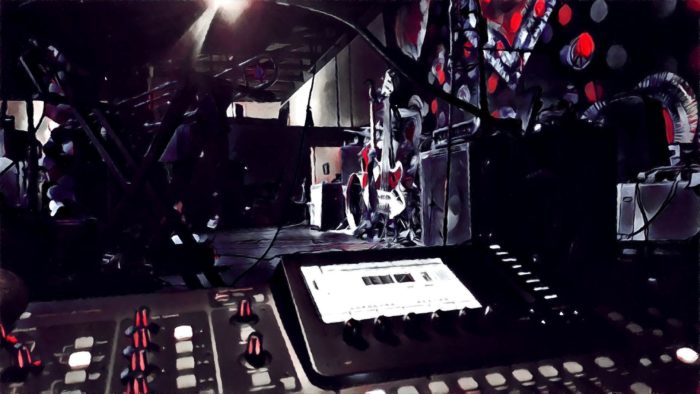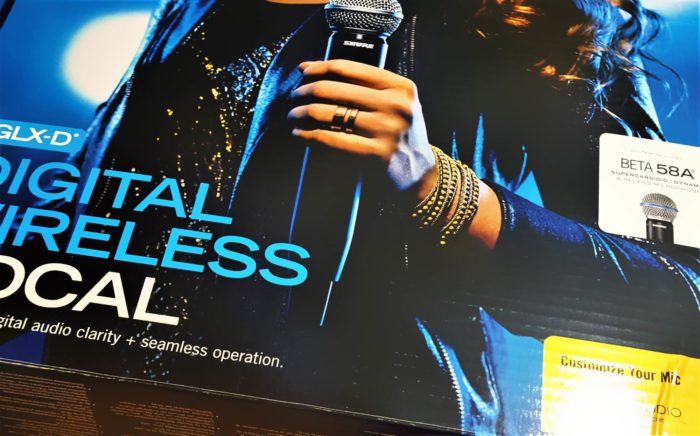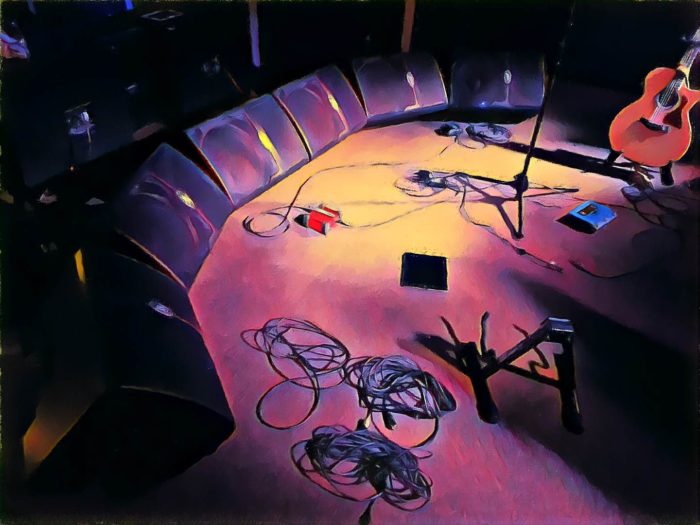I get frustrated when problems that could have been avoided crop up and make us all look dumb.
Please Remember:
The opinions expressed are mine only. These opinions do not necessarily reflect anybody else’s opinions. I do not own, operate, manage, or represent any band, venue, or company that I talk about, unless explicitly noted.

 Want to use this image for something else? Great! Click it for the link to a high-res or resolution-independent version.
Want to use this image for something else? Great! Click it for the link to a high-res or resolution-independent version.To be fair, it wasn’t a nuclear-detonation sort of event. Here’s what happened:
I was working an evening that involved Someone You’ve Heard Of. There was a choral performance that involved playback, and I was hands-on with that to make the FOH engineer’s life more manageable. (I handled pressing go, stop, and trimming channel levels.)
No problem, right? Easy.
Where things didn’t work out is that we had two stages going, and the schedule got a little mangled. Along with that, there was no communication about exactly what was supposed to be happening in the moment. In theory, one stage was supposed to be resetting while the other was playing, but nobody was “riding herd” on that, so the stages were starting to interlace their performances: The main stage would do a tune, then the second stage would jump in and do one if we didn’t seem to be getting to the next tune fast enough, and so forth.
This worked out to a point, and then crumbled a good bit. It seemed like the other stage wasn’t ready, so we went ahead with a tune…and then, suddenly, “Stop! Stop!” (The second stage had started up.) I yanked down the music fader and ended playback. A beat of silence, as both stages had now pulled themselves up short, and then, “Go playback.” A few seconds in, and the second stage started AGAIN.
“Stop! Stop!” said the stage manager. “STOP!” said someone in the choir, turning to look at me like I was a doofus. As I yanked my fader and cut playback for the second time, I made a clear gesture and facial expression of exasperation.
I shouldn’t have done that. I shouldn’t have lost my cool.
…and there’s no “but” coming here. I’m not going to defend doing something I shouldn’t have done. What I am going to do is to explain why it happened.
As I’ve gotten more experienced, I’m finding it more difficult to gladly suffer bad planning that leads to shoddy execution, or just shoddy execution in general. I especially hate it when that shoddy execution makes apparent idiots of me and the people around me. I double-especially hate it when, as in this case, such a thing happens at what should be an event featuring varsity-level execution from everyone. This was a high-dollar, high-powered production, and a simple lack of someone (anyone) being willing to actually manage the two stages led to all of us looking like amateurs. It was near chaos, done live in front of an upper-crust audience.
Un.
Effing.
Acceptable.
I used to be better at hiding my emotions. I was more stoic once. I don’t know if that’s good or bad in general. When that intersects with the amount of pride I take in doing this stuff in the best way possible, I sometimes react poorly. When I’m caught off-guard, that’s more likely to happen.
I don’t want to lose my cool. I want to be a rock. I’m not a rock, though, and I internalize things easily. As such, I lose my cool sometimes. It’s not a great thing, but it is a thing.








